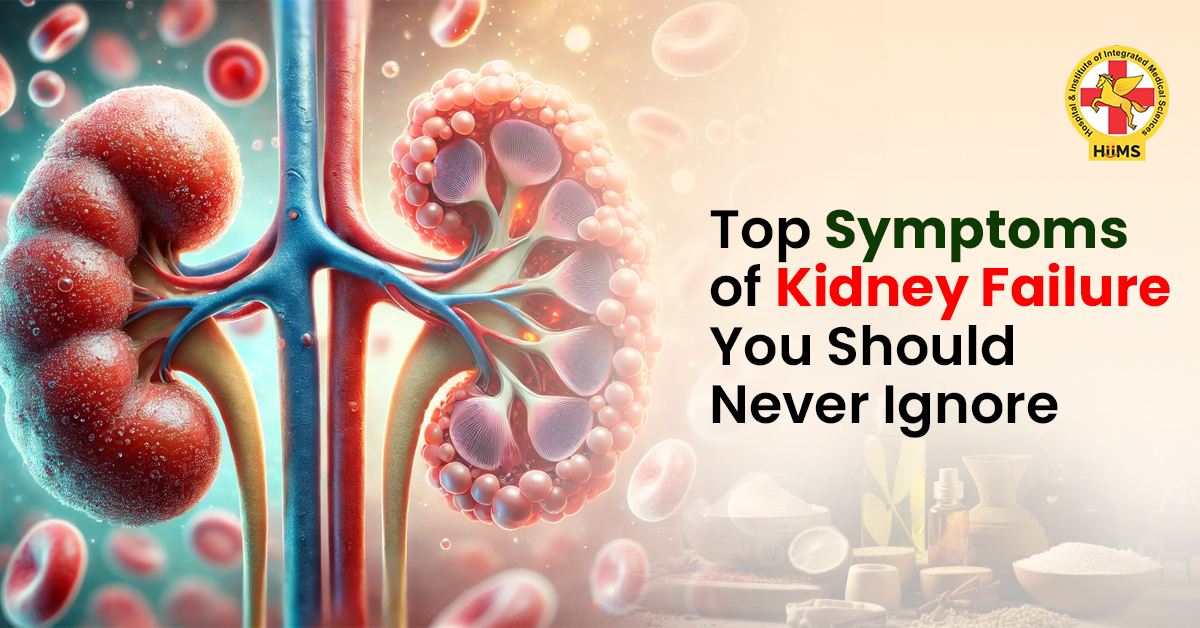Sometimes the human body gives small hints when something inside is not right. Kidneys are one of those organs that stay quiet even when they are struggling. A person may feel normal on the outside, but inside, the kidneys may be working very hard. Many people do not notice changes because the signs come slowly. But some of these signs are actually important symptoms of kidney failure. When these signs are ignored, the problem grows quietly and becomes harder to handle later. A doctor can help only when we notice the warning signals at the right time. Learning about kidney failure symptoms can help someone understand what their body is trying to say. This guide explains these signs, so anyone can understand what to look for and why spotting these signs early matters for long-term health.
Why Early Detection Matters
Kidneys do not stop working in a single day. The trouble builds up step by step. In the early days, a person might feel tired, or they may notice swelling in the feet and think it is due to long standing. But these small changes can be the body’s quiet way of asking for help. Early detection gives enough time for medical support, diet changes, and lifestyle correction. When the problem is noticed early, damage slows down, and kidney strength stays longer. Many times, people only learn about kidney trouble when the symptoms become severe, like breathlessness or almost no urine. That is why paying attention to small changes is very important.
Common Symptoms of Kidney Failure
1. Change in Urination
A healthy body makes urine regularly. When kidneys struggle, urine patterns get disturbed. Some people urinate many times, even at night. Some pass very little urine. Urine may look dark or foamy. Seeing blood in urine is also a strong warning sign.
2. Swelling in Legs, Feet, or Face
If the kidneys cannot move extra salt and water out of the body, it starts collecting in the tissues. The feet, ankles, fingers, or face may look puffy. Swelling may keep increasing slowly.
3. Feeling Tired and Weak
When the kidneys do not work well, fewer red blood cells are made. This may result in weakness, fatigue, and energy deficiency. Even minor activities might be challenging.
4. Trouble Breathing
Excessive fluid may enter the lungs occasionally. The result is short breathing. Climbing stairs or walking short distances may feel hard.
5. Nausea and Vomiting
When waste collects inside the body, the stomach gets upset. A person may feel like vomiting often, lose interest in food, and feel heavy in the stomach.
6. Itching or Rashes
Toxins inside the blood can make the skin itchy or dry. Some people get rashes, too.
7. Loss of Appetite
Food may lose taste because waste stays inside the body. Weight may drop without trying.
Why Kidney Failure Happens
- Long-term diabetes
- High blood pressure
- Repeated kidney or urine infections
- Harmful medicines or toxins
- Chronic kidney diseases
Knowing the causes of kidney failure helps people avoid things that damage their kidneys over time.
Kidney Failure Stages
Kidney failure grows in steps. The kidney failure stages are:
- Stage 1 & 2: Small damage. Few or no visible signs.
- Stage 3: Moderate damage. Swelling, tiredness, and appetite changes may appear.
- Stage 4: Severe damage. Regular check-ups are needed.
- Stage 5: Very little kidney function left. Dialysis or transplant may be required as kidney failure treatment.
How to Prevent Kidney Failure
Simple habits can protect kidney health. Knowing how to prevent kidney failure is useful for everyone:
- Keep blood sugar and blood pressure in control
- Drink enough clean water
- Avoid too much salt and processed food
- Stay active and maintain a healthy body weight
- Treat urine infections on time
- Do not take random medicines without advice
Even small healthy steps help the kidneys work comfortably.
Conclusion
Kidney failure is a serious condition, but early action makes a strong difference. Understanding symptoms of kidney failure, listening to the body, and getting timely help can protect kidney function for a longer time. Small changes like swelling, tiredness, or changes in urine should never be ignored. When someone gets proper help and follows a healthy routine, life becomes easier to manage. Simple habits like regular check-ups, taking medicines on time, and listening to doctors can stop the illness from getting worse. Staying aware of your body signals makes a big difference.
FAQs
1. What are the early signs of kidney failure?
A: Change in urine, swelling, tiredness, nausea, and skin itching.
2. Can appetite change due to kidney failure?
A: Food may feel tasteless, leading to low appetite and weight loss.
3. How many stages of kidney failure are there?
A: There are five stages, from small damage to complete failure.
4. Is dialysis the only option?
A: Other kidney failure treatment options include natural therapies, medicines, lifestyle care, and transplant.
5. How to prevent the kidneys from failing?
A: Healthy meals, enough water, exercise, and regular check-ups help protect kidney health.


